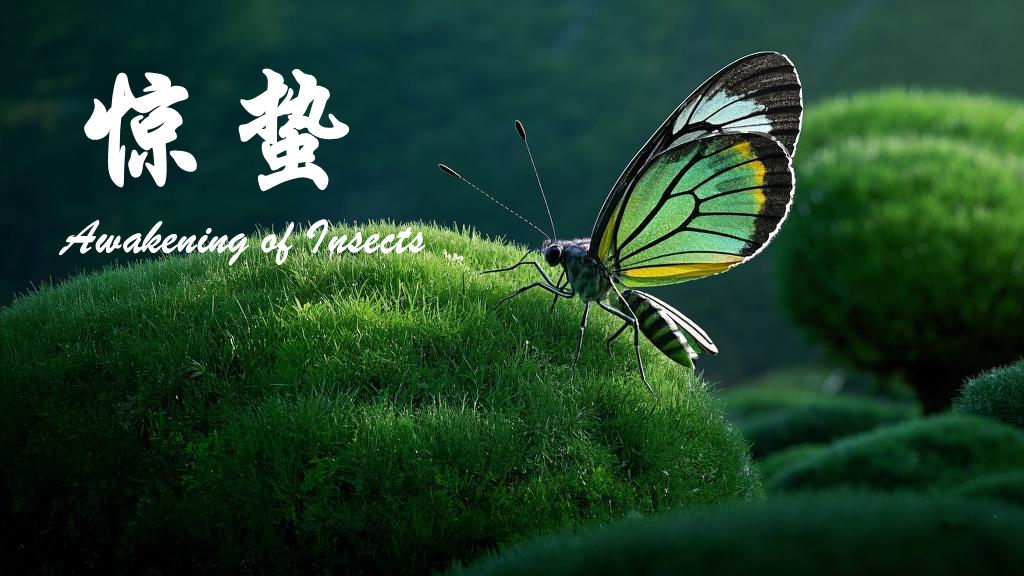惊蛰:雷惊蛰虫动,雨润农耕忙

Jingzhe, or the Awakening of Insects, marks the third of China’s 24 solar terms, signaling the transition from winter stillness to spring vitality. Usually starting around March 5, this period is named for the belief that spring thunder “startles” hibernating (冬眠) creatures. In reality, insects emerge not from fear of thunder but due to rising temperatures. Jingzhe also announces the start of critical agricultural activities and carries unique cultural traditions.
▲ Modern meteorological science explains why: around Jingzhe, the earth becomes humid and the hot air near the surface rises; meanwhile, the hot humid air from the north is strong and creates frequent winds. For this reason, thunder occurs in this period. However, China’s vast territory means the first spring thunder appears at different times in different areas.
Jingzhe is a golden window for spring plowing. Temperatures across most regions rise sharply, averaging above 10°C, while increased sunlight accelerates soil thawing (融化). As the proverb states, “When Jingzhe arrives, plows never pause.” Farmers rush to prepare fields, knowing timely sowing now promises autumn abundance.
As nature reawakens, fish migrate from deep waters to shallow areas to feed and breed, making Jingzhe ideal for fishing. For urban residents, this offers a perfect countryside escape — casting lines under willow trees while listening to birdsong makes a peaceful spring day.
Eating pears is a widely-practiced custom in China. Pears keep throats moist in dry weather. But there’s more! In Chinese, “pear” (梨) sounds like “separate” (离), meaning pests will stay away from crops. It also sounds like “plow” (犁), symbolizing good farming. So, pears aren’t just tasty — they carry hopes for a healthy harvest!
原创编写 版权所有 侵权必究! 每日更新 个性化阅读 英语飙升!